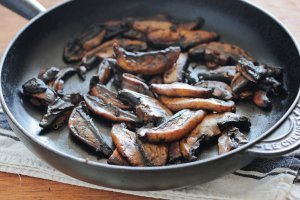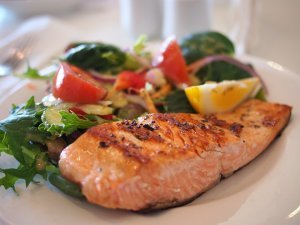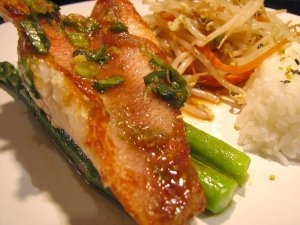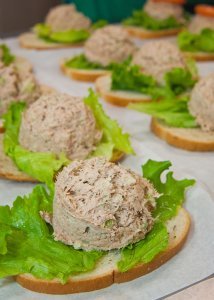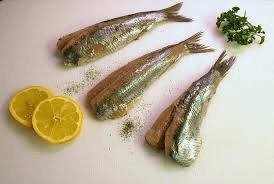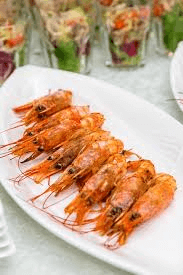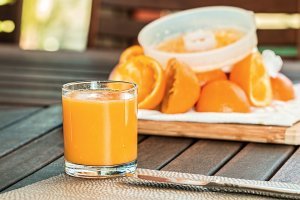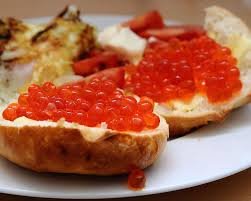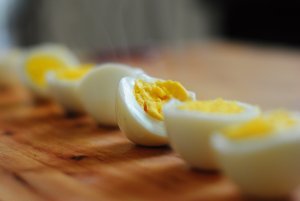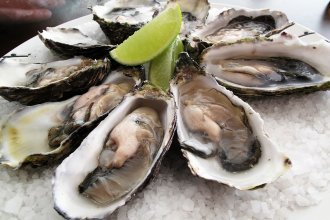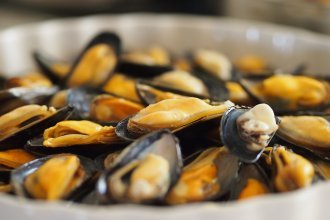12 Foods Highest in Vitamin D
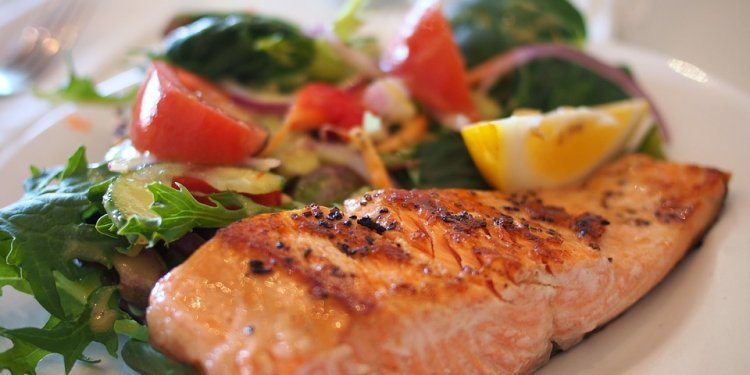
If sitting in a dark room neck-deep in blankets and two seasons into your favorite show is starting to get to you, chances are you need some more vitamin D in your life.
Your favorite character is going through a crisis, which you thought you could handle. But to your surprise, the tears come streaming out.
You go to stuff your face with a fistful for buttery popcorn to cope with the tragedy, but suddenly you realize the toll every fistful has taken on your belly. Here come the waterworks again.
Your roommate comes into the room only to find you at your lowest point. She opens up the blinds explaining that you should get some sun and drink some orange juice to get some vitamin D.
You wonder how on earth will vitamin D make you feel better?
Why is vitamin D important?
If you’ve ever found yourself in a similar situation, vitamin D can actually be a very helpful cure to your problems.
Vitamin D is a key component in battling depression and regulating your mood. So if you’re finding yourself getting over emotional about the tiniest things, vitamin D can help pep you back up naturally.
It’s also useful for losing weight, even if you do indulge on buttery popcorn by the buckets every now and then. This is especially true when you pair vitamin D with calcium, which help eliminate the urge to snack throughout the day.
Studies have also show that vitamin D, in addition to helping you lose weight, can also reduce your risk of developing heart conditions that are associated with being overweight.
Luckily for you, vitamin D is very easy to come by. Of course you can always have fun in the sun to get more vitamin D, but you can also get it from eating certain foods.
For your best results, try one of these foods:
Top Foods Highest in Vitamin D
- Wild Mushrooms
- Salmon
- Eel
- Red Snapper
- Tuna
- Herring
- Shrimp
- Orange Juice
- Caviar
- Milk
- Ham
- Hard Boiled Eggs
Wild Mushrooms
- Calories: 30
- Protein: 4g
- Fat: 0g
- Vitamin D: 2,300 IU
If you feel as if you’re not getting enough vitamin D, wild mushrooms are the way to go. They’re packed with more than enough of the vitamin, as well as many others.
Wild mushrooms are home to many B vitamins, which are essential for keeping you energized by turning yummy carbs into fuel for your day.
They’re also a great way to keep off the pounds since they’re filling and low in calories.
Salmon
- Calories: 208
- Protein: 20g
- Fat: 13g
- Vitamin D: 988 IU
If you are a seafood fanatic, you’re in luck! Salmon, along with many other fish, is abundant in vitamin D.
Although the fat content might turn you away, salmon is one of the best foods you can eat for your body. It’s filled with omega-3 fatty acids, which are essential lowering your chances of cancer.
Its astaxanthin content can also help keep your skin healthy and youthful.
Eel
- Calories: 236
- Protein: 24g
- Fat: 15g
- Vitamin D: 932
By the looks of them, eel might be the last thing you ever want to try. But don’t knock them before of you try them.
Eels are an excellent source of various vitamins. These vitamins, such as the B vitamins and vitamin A, work together to improve the health of your eyes, brain and reproductive system.
Eating eel can also reduce your chances of developing breast cancer!
Red Snapper
- Calories: 218
- Protein: 44g
- Fat: 3g
- Vitamin D: 408 IU
Snap your fingers in applause for red snapper because it’s both delicious and nutritious!
Red snapper is an excellent food to add to your diet if you’re trying to lose weight. It’s rich in protein, which keeps you fuller longer and prevents you from unhealthy snacking habits.
Its low fat content also makes it a good choice for those who are conscious of their heart health.
Tuna
- Calories: 157
- Protein: 25g
- Fat: 5g
- Vitamin D: 223 IU
You might be one to turn your nose at a can of tuna, but you might give it a second chance once you know the health benefits.
For one, tuna is full of antioxidants, such as vitamin C and selenium. These antioxidants help give your immune system a boost to protect you from getting sick so easily.
Tuna also has anti-inflammatory properties, which can help prevent arthritis.
Herring
- Calories: 158
- Protein: 18g
- Fat: 9g
- Vitamin D: 167 IU
If you’re not a huge fan of fish, herring will make you be one. It can be cooked and eaten practically any way you could imagine and it’s good for your body.
Herring is one of the best foods you can eat to protect your bones. It’s full of various minerals and protein that make up your bones and keep them strong.
It’s also packed with fatty acids that help keep your brain in good health.
Shrimp
- Calories: 99
- Protein: 24g
- Fat: 0.3g
- Vitamin D: 152
Whether you like them grilled, battered or dipped in cocktail sauce, shrimp is delicious. But the best part is that you don’t have to feel guilty about eating them.
Aside from being a great way to manage your weight, shrimp is also great for protecting your skin. This shellfish contains astaxanthin, which helps reduce signs of aging and sun damage on the skin.
Shrimp also keeps your hair strong and abundant with its zinc content.
Orange Juice
- Calories: 111
- Protein: 1.7g
- Fat: 0.5g
- Vitamin D: 142 IU
When you drink a glass of orange juice, you’re practically drinking a glass of nutrients.
This delicious drink is packed to the brim with antioxidants, such as vitamin C and vitamin A. These components help protect you from certain cancers, rid your body of toxins and even improve your eyesight.
With or without pulp, orange juice is a sure-fire way to improve your health.
Caviar
- Calories: 75
- Protein: 7g
- Fat: 5g
- Vitamin D: 136 IU
If you’re feeling extra fancy today, caviar should definitely be on your dinner plate. Not only is it an elegant addition to your meal, but it’s also a nutritious one.
Caviar is most rich in omega-3 fatty acids, which are great for several things. These fatty acids help lower your chances of suffering from a heart attack, improve your mood and act as an antidepressant.
It’s B vitamins can also get rid of those pesky stress-induced migraines.
Milk
- Calories: 124
- Protein: 8g
- Fat: 4.9g
- Vitamin D: 130 IU
A milk mustache isn’t so bad when you’ve just consumed enough nutrients to get you through your day.
Milk is beverage you need to be drinking if you’re concerned about your teeth. Rather than breaking down enamel like soda, milk makes it stronger to give you pearly whites.
Some studies have also shown that milk can actually slow down the effects of colon cancer.
Enjoy it plain or eat it with your favorite cereal!
Ham
- Calories: 145
- Protein: 21g
- Fat: 6g
- Vitamin D: 45 IU
You just can’t beat a classic like a ham and cheese sandwich. Not only does this simple meal bring back memories, but it’s also giving you good health.
Ham is rich in several B vitamins and phosphorus, which do multiple things for your body. These components help create stronger skin and hair, while also making sure your muscles are functioning properly.
Don’t indulge too much though. Ham is very high in sodium, which could lead to heart problems.
Hard-Boiled Eggs
- Calories: 78
- Protein: 6g
- Fat: 5g
- Vitamin D: 44 IU
Hard-boiled eggs are the perfect breakfast for those wanting something quick and easy. But they’re also a healthy choice!
This simple breakfast is packed with vitamin A, which is essential for keeping your eyes in good shape and preventing poor night vision.
It also has a great calorie-to-protein ratio, which means you can eat less and feel fuller.
What happens if I don’t get enough vitamin D?
Not getting enough vitamin D is fairly common, and it results in a vitamin D deficiency.
At first the symptoms will be relatively mild, but the longer you’re deficient in vitamin D, the more serious symptoms and risks will get.
Some of the more common symptoms in the initial stages of a vitamin D deficiency are: having achy bones, feeling down in the dumps and breaking a sweat on your forehead.
If your deficiency persists, you’re also more susceptible to gaining weight at a quicker rate. You can also develop other issues, such as gluten intolerance.
Overtime, the risks associated with a vitamin D deficiency will get more serious.
Because vitamin D is an important factor in battling certain illnesses, being deficient in it can open you up to serious condition. Some of the illnesses include influenza, stroke, inflammatory bowel disease and heart disease.
Who is at risk of developing a vitamin D deficiency?
Vitamin D is one of the easiest vitamins to become deficient in. This so because it’s not available in abundance through a variety of food that caters all tastes, and the vitamin’s biggest supplier is the sun.
Although anybody can develop a vitamin D deficiency, there are people who are more likely to than others.
For one, those with darker-toned skin are more likely to be deficient because the darker the skin the harder it is for vitamin D to be absorbed from the sun.
The elderly are another group of people that have a higher risk of deficiency because they’re kidneys aren’t as successful in processing vitamin D in the body.
Aside from not getting enough time in the sun or being to absorb it properly, vitamin D can also be hard to get enough of if you’re a picky eater.
If you’re not a fan of fish or are vegan, your options are very limited. But, on the plus side, vitamin-D supplements are always an option.
In what ways will you try to incorporate more vitamin D into your diet?

